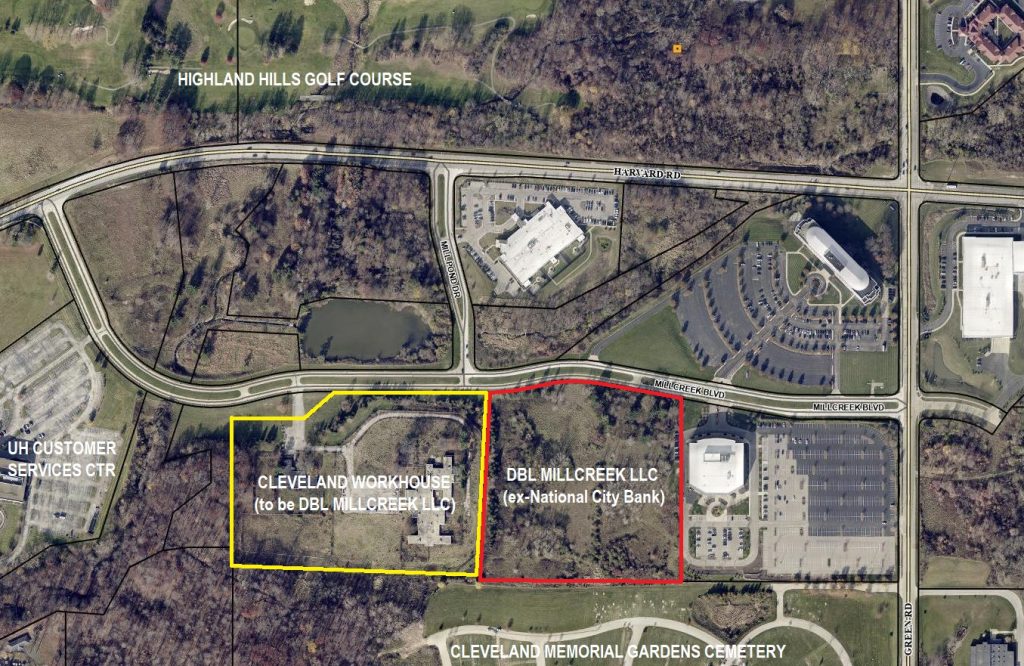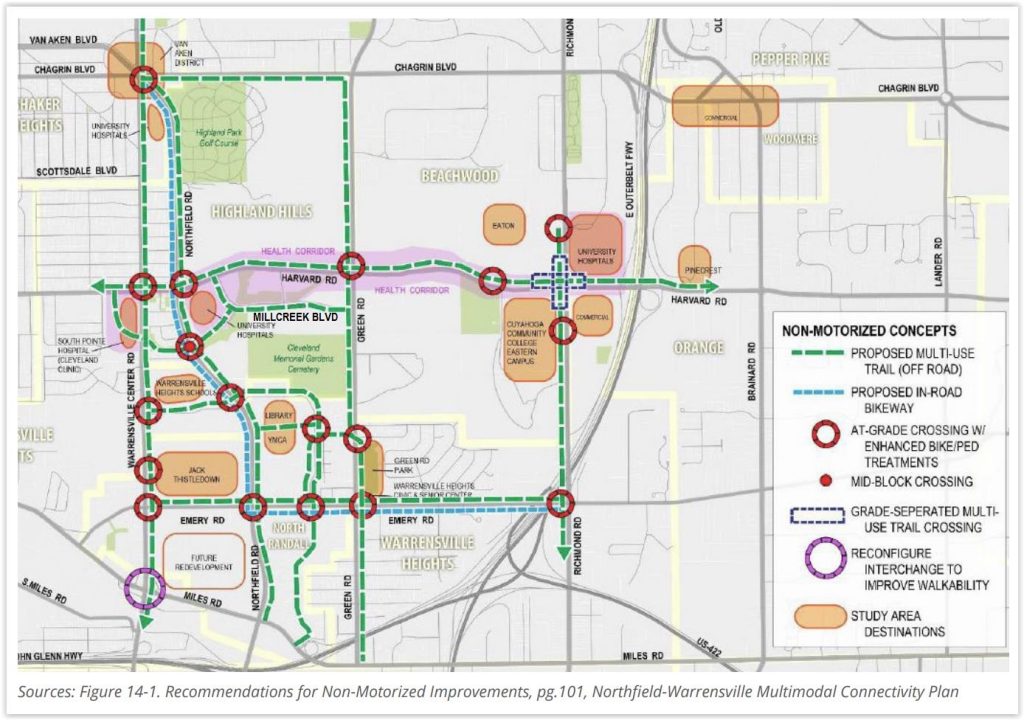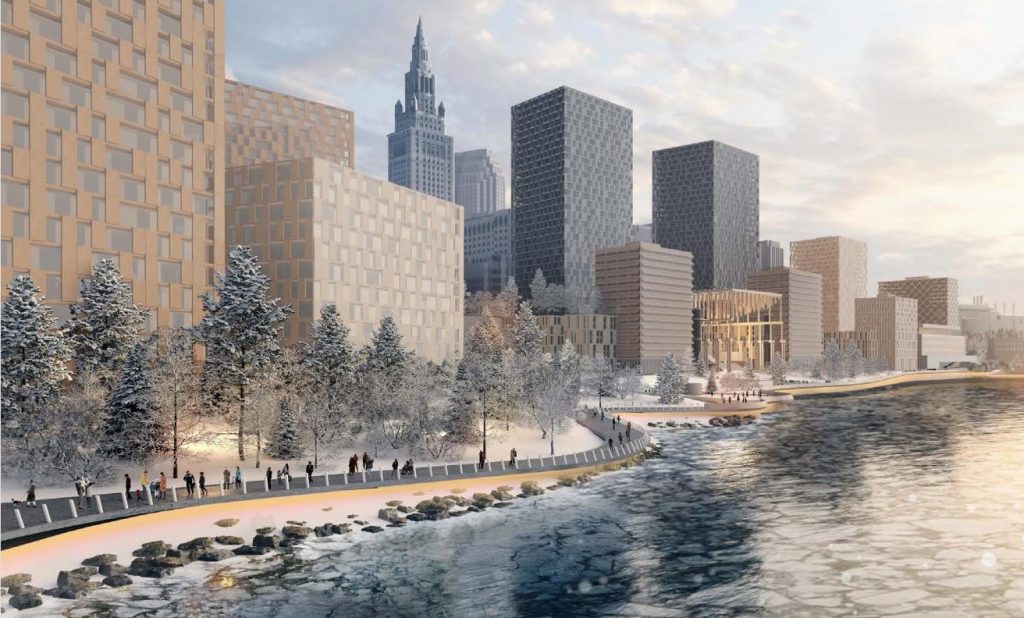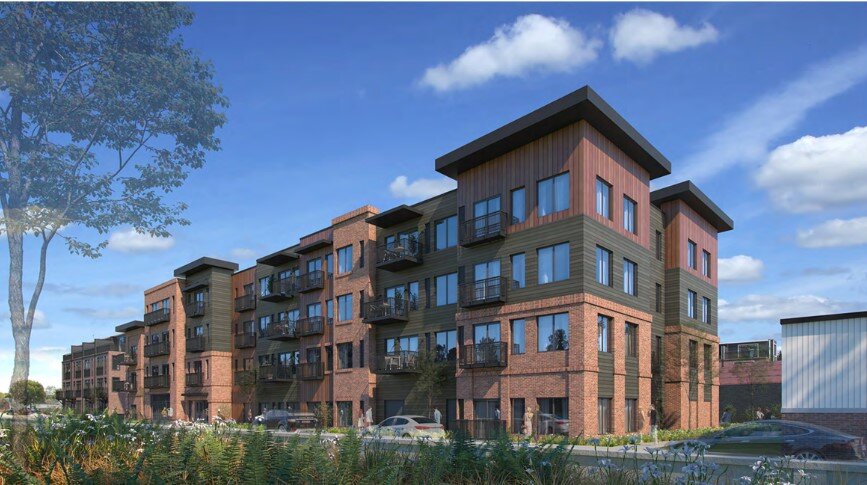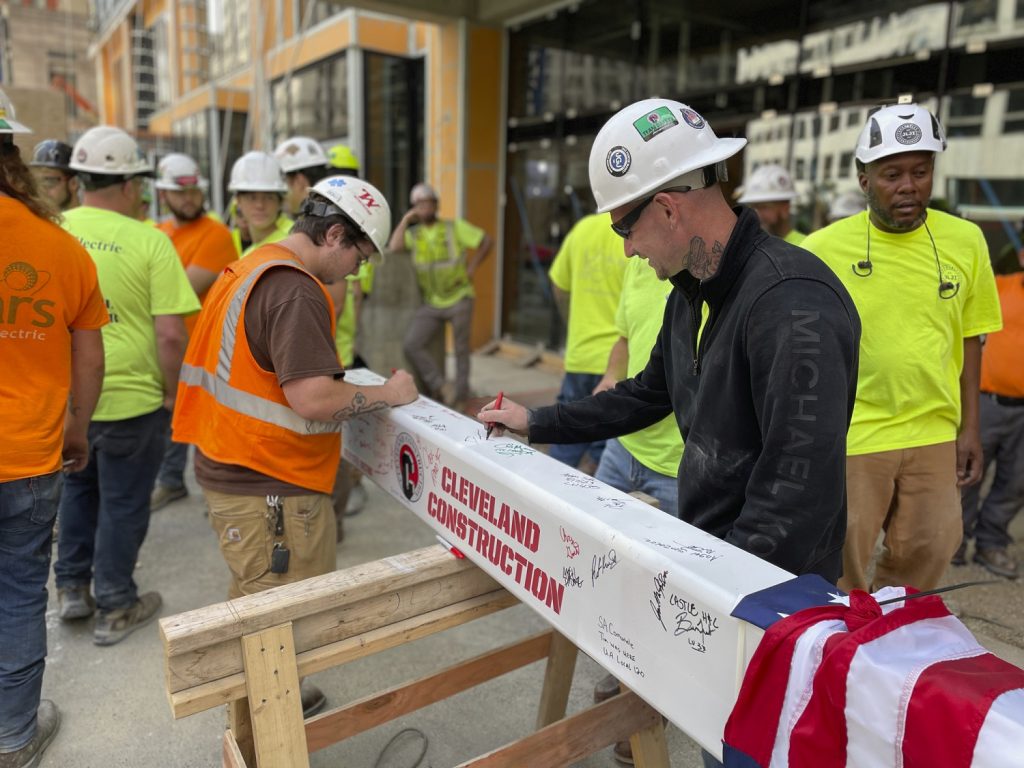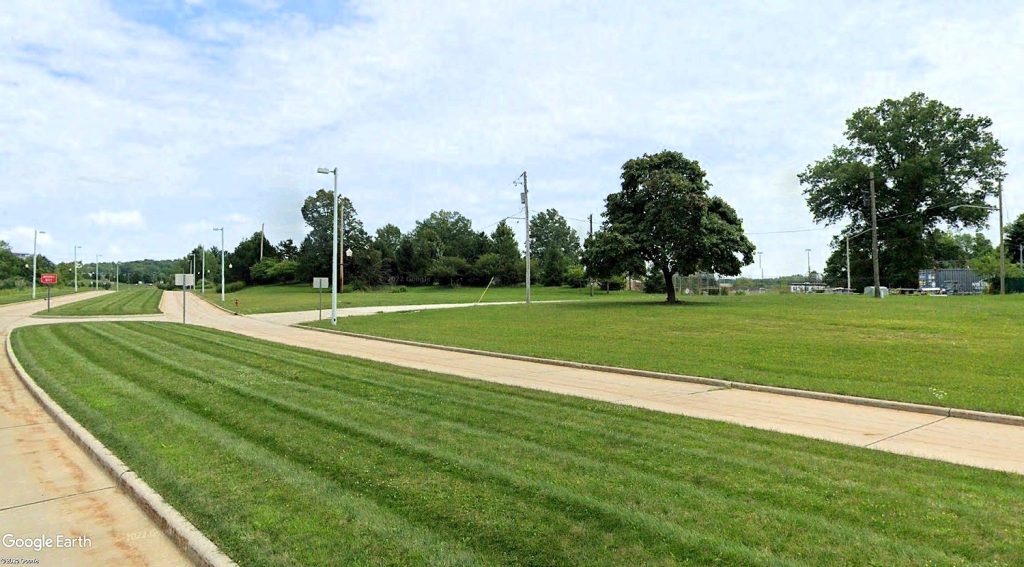
An empty street in an undeveloped part of suburban Highland Hills is attractive to an industrial user seeking a rare, large patch of Cuyahoga County land. The land, seen here across Millcreek Boulevard, is being sold, cleaned up and added to a joint development zone with the city of Cleveland (Google). CLICK IMAGES TO ENLARGE THEM.
Cleveland OKs sale of 15 acres on Millcreek Blvd
NEOtrans has learned that the developer of a 30-acre spread of land in suburban Highland Hills isn’t marketing the assembled parcels to a new, job-rich end-user. The reason is that the developer already has one lined up for the land, located in the 22700 block of Millcreek Blvd.
The name of the end-user isn’t known but NEOtrans has learned a little bit about them from a source who spoke on the condition of anonymity. That source described the end-user as a manufacturer that doesn’t currently have a presence in Greater Cleveland.
Conservatively, the investment by the out-of-town industry was estimated at $40 million in an application for Ohio Brownfield Program funds. The industrial development offers “institutional-grade commercial spaces supporting hundreds of new jobs, enhancing economic opportunities in Highland Hills,” according to the application.
The application was successful. Cuyahoga Land Bank was awarded $1,792,027 in Brownfield funds last December. The sub-applicant was DBL Millcreek LLC, a partnership of Eric Loomis, president of Euclid-based construction firm Loomis Companies, and Rico Pietro, principal with Cushman & Wakefield – CRESCO Real Estate in Independence.
Pietro, DBL Millcreek’s spokesperson, did not respond to an e-mail from NEOtrans seeking more information about their endeavor. DBL is an acronym for Design-Build-Lease. An affiliate, DBL Development LLC, is a contestant to build a new Justice Center for Cuyahoga County’s plodding effort to achieve a consolidated courthouse.
Last week, Cleveland City Council approved two ordinances associated with the Millcreek site in Highland Hills. The first was to authorize the sale of the former Cleveland Workhouse penal facility to DBL Millcreek for $800,000.
The property is comprised of several structures located on approximately 14.76 acres. Cleveland’s Department of Public Safety ceased operating the Workhouse as a correctional facility in 2018 and was using it for storage purposes, city records show.
“The (Cleveland) Department of Economic Development vetted the proposed development and negotiated a sale price that would enable the developer to proceed with the proposed development, in consideration of predevelopment costs to prepare the land for redevelopment,” according to a summary by the Mayor’s Office of Capital Projects (MOCAP) – Division of Real Estate.
The source said the sale is expected to close in about 30 days. Then, the Brownfield money will be used to demolish the Workhouse structures and remediate the site, a process which the source estimated would take about 12-18 months.
DBL Millcreek already owns an adjacent 13.2-acre parcel to the east of the former Workhouse. In 2023, the firm acquired excess land from a former National Bank Operations center site for $855,000, county records show. The bank operations center still stands to the east at 23000 Millcreek but as a for-lease office building called Millcreek Place.
The second ordinance approved by Cleveland City Council last week was to add the former Workhouse site to a Joint Economic Development Zone Agreement (JEDZA) originally established in 1996 to facilitate development of land owned by Cleveland in the village of Highland Hills.
In exchange, public services and utilities to the site will be provided by the village. Taxes generated by returning this city-owned land to productive use will be shared 50/50 by the city of Cleveland and the village of Highland Hills. The village council is due to approve the JEDZA amendment at its regular monthly meeting tomorrow.
“The proximity of the property to the southeast side of Cleveland will result in job opportunities for city residents, directly addressing concerns about the lack of economic opportunities for Cleveland residents in this area,” noted the MOCAP summary.
The site of the manufacturing plant is about 900 feet from the nearest bus stop, at Harvard Road and Mill Pond Drive. The stop is served by the Greater Cleveland Regional Transit Authority’s No. 15 bus which operates every 15 minutes each way during the day and every 30 minutes in the evenings, weekends and major holidays.
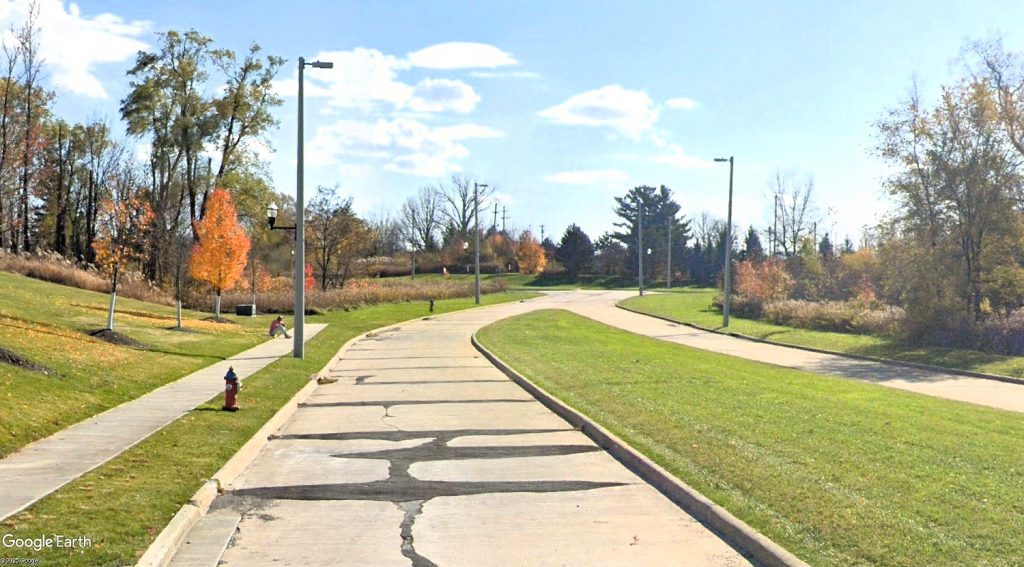
Looking south on Mill Pond Drive toward Millcreek Boulevard and the development site beyond. Hopefully the guy sitting on the unfinished sidewalk at left wasn’t waiting for it to be finished in November 2020 to continue walking. The village of Highland Hills hopes to complete it in the coming years (Google).
Unfortunately, sidewalks don’t exist in this area. That could soon change. In a plan developed with the assistance of the Cuyahoga County Planning Commission, the village of Highland Hills seeks to construct along Millcreek Boulevard a multi-use trail and complete the missing sections of sidewalk. The boulevard, completed in 2007, was one of the village’s largest infrastructure projects.
The village also plans to restore floodplains to Mill Creek and build along it the Millcreek Greenway Trail — a multi-use path through the woods linking Warrensville Center, Green and Harvard roads via Millcreek Boulevard.
Highland Hills could use a more productive taxbase. The top five landowners within Highland Hills are all institutional owners — the city of Cleveland, Cuyahoga Community College (Tri-C), the State of Ohio, University Hospitals Health System, and the village of Highland Hills.
By far, the city of Cleveland is the largest land owner in Highland Hills, the village’s comprehensive plan noted. Its holdings encompass 719 acres, which is more than half (59.3 percent) of the land in the village. The city’s properties include Camp George Forbes, Highland Park Cemetery, Highland Park Golf Course, Cleveland Memorial Gardens Cemetery, vacant land, and the open space along Mill Creek east of Northfield Road.
END

